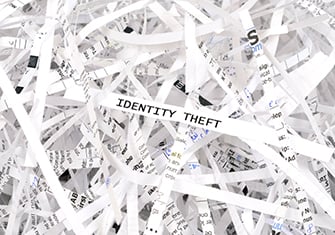
The MATCH List Reason Codes FAQ
July 31, 2023
High-Risk Merchant FAQ
October 29, 2023Get Off The MATCH List and Save
Have you recently discovered your business has been placed on the MATCH List and you’re paying high fees for a high-risk payment processor? You’re likely quickly finding out how expensive it is to be a high-risk merchant, and the only way out of this expensive hole is to get off the MATCH List. But, how? If you’re done paying crazy fees and want to get back to business as usual, we can help. Keep reading to learn how to stop paying high-risk merchant fees by getting off the MATCH List as soon as possible.
Why Am I On The MATCH List?
The MATCH List is a tricky place to be. Founded and operated by Mastercard, your payment processor does not have to alert you to the fact that you have been placed on the list. They do not even have to tell you why, either. This can make it very difficult to find out how to fix the situation, prevent it from happening again, and repair holes that are happening in your business.
One of the only ways to find out why you were placed on the MATCH list is by calling your payment processor or acquiring bank and simply asking. They are not obligated to give you an answer; however, there is a chance they might. Sometimes, they may even afford you the opportunity to fix your error if it is something simple, but usually, this is not the case.
The reason you have been placed on the MATCH List is due to one of thirteen reason codes. These codes have been developed to protect payment processors and acquiring banks, as well as to protect consumers and their data.
The MATCH List Violation List
The reason codes, as lined out by Mastercard, include:
- Account Data Compromise
- Common Point of Purchase (CPP)
- Laundering
- Excessive Chargebacks
- Excessive Fraud
- Fraud Conviction
- Mastercard Questionable Merchant Audit Program
- Bankruptcy/Liquidation/Insolvency
- Violation of Standards
- Merchant Collusion
- PCI Data Security Standard Noncompliance
- Illegal Transactions
- Identity Theft
Understanding High-Risk Merchant Status
If you have been operating as a high-risk merchant and are working with a high-risk processor, you are quickly finding out that they are very expensive and are eating into your bottom line. Getting placed on the MATCH List can quickly cause businesses to shut their doors, and this is likely by design. In order to keep business owners honest, as well as to protect banks, processors, and consumers, Mastercard works hard to make sure their rules are followed to a T. As such, being a high-risk merchant comes with many consequences, including the fact that you cannot process credit cards, you have been blacklisted, and your business will likely go under.
You Can’t Process Credit Cards
When you have been placed on the MATCH List, you no longer have the ability to process credit cards through your merchant account. Due to today’s technological advances, the hard truth is that this will likely kill your business. Nearly everyone pays with their credit cards these days, and hardly anyone pays with cash anymore. As such, you’re left wondering how you are going to keep your doors open.
For now, you can try to accept cash only. However, this can be very difficult for many people, and you can end up losing a lot of customers, and potential customers, due to this. It can also give your business a bad reputation, even if you do end up reopening your merchant account one day.
You’ve Been Blacklisted
Another consequence of being placed on the MATCH List is that you are now blacklisted from reopening another merchant account. Finding another processor who is willing to work with you is very difficult. If you do find one, you will likely pay very high fees.
And, Mastercard has ensured that there are no easy loopholes that people can use to sign up for another merchant account. You cannot change the name of your business — the list is so comprehensive that it is impossible to do so.
The information that is on the MATCH List includes:
- Your business name in all its forms
- Names of the business owners
- Names of associates
- Business address and contact details
- Addresses, phone numbers, and other contact information
Your Business Will Likely Go Under
Due to the fact that you are no longer able to accept credit cards and do not have the ability to open another merchant account without paying extremely high fees, the reality is that your business may go under. And, if it does, you will still be on the MATCH List for a total of five years. Opening another business is impossible during this time, which can quickly lead to financial devastation for you, your family, and your future.
The only way to get off the MATCH List is by waiting the mandatory five-year waiting period. After five years, all traces of you and your information are off the MATCH List database, and you can go back to running business as usual, opening merchant accounts, and accepting credit cards. It is almost impossible to wait the five years successfully, which, as mentioned, is by design.
How Can I Get My Business Off The MATCH List?
If you are done paying exorbitant high-risk merchant fees, want to get off the MATCH List, save your business, and secure your future, seeking early removal from the MATCH List is going to be your best bet. There are two ways you can seek early removal from the MATCH List. They include:
- Calling your payment processor. As mentioned, you can call your payment processor to see why you were placed on the MATCH List. Sometimes, it can happen in error. If it was due to excessive chargebacks, for example, and you have documentation to prove that you were within range, there is a chance you may be able to get early removal, but it is not guaranteed.
- Seek legal, professional help for early removal. You do not have to go through this alone. The MATCH List and being removed from it are very difficult things, but luckily, there are professionals, such as TFM Law, who are experts in this field.
How Can I Avoid This Happening Again?
If you want to ensure that you do not ever have to face this nightmare again, here are a few things you can do:
- Invest in great customer service. One of the main reasons people open chargebacks against a business is due to poor customer service. Quickly replying to your customers, shipping in a timely manner, and selling as advertised are all extremely important.
- Stay compliant. Making sure that you are compliant with all the latest data requirements is essential for staying off the MATCH List.
- Do your due diligence. Make sure you review the MATCH List reason codes and stay vigilant. Ensure that your business follows all the proper processes and procedures, maintains thorough documentation, and is honest and ethical.
Early MATCH List Removal TFM Law
If you have found yourself on the Match List, we can help you. The Law Offices of Theodore Monroe focuses on litigation and counseling in the areas of payments, credit card processing, e-commerce, direct response marketing, and Federal Trade Commission enforcement. Last year, the firm got 100% of the people who came to us off the MATCH list.
Theodore F. Monroe, Founder of TFM Law, has successfully:
- Represented merchants recovering funds from processors
- Structured processing relationships to comply with Card Brand requirements
- Drafted and negotiated contracts involving payment facilitators and ISOs
- Represented continuity merchants in compliance and litigation issues
- Fought for numerous companies in suits brought by the Federal Trade Commission and obtained excellent results for firms in the digital products, loan modification, government grant, and nutraceuticals industries
Before opening his firm, Mr. Monroe practiced law with Crosby, Heafey, Roach & May (now Reed Smith LLP) and Lewis, D’Amato, Brisbois & Bisgaard (now Lewis, Brisbois, Bisgaard & Smith), where he defended numerous accounting and law firms in professional liability actions, and insurance carriers in bad faith actions.
Before becoming a lawyer, Mr. Monroe worked as a forensic accountant at Coopers & Lybrand, which provided him a background in forensic accounting and financial analysis that is unique among litigators in Los Angeles. Mr. Monroe studied at Duke University Law School, achieved a BS with Honors, Accounting, University of Kentucky, and is a member of the California State Bar and the Kentucky State Bar.
Visit us at howtogetoffmatch.com and get your life back!




